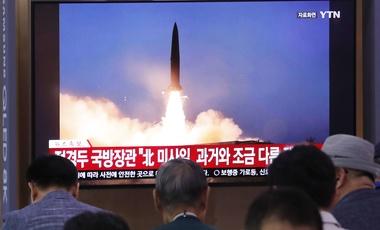Date:
Location:
Project on Managing the Atom Seminar Series; co-sponsored by the Korea Institute
Stephen Herzog, Stanton Nuclear Security Predoctoral Fellow with the Project on Managing the Atom and International Security Program, Harvard Kennedy School
Stephen Herzog is a Ph.D. candidate in Political Science at Yale University and a Stanton Nuclear Security Predoctoral Fellow with the International Security Program/Project on Managing the Atom. He focuses on nuclear arms control, deterrence, and proliferation. His research draws on archival methods, elite interviewing, and survey experiments. Stephen also holds fellowships with the Yale Project on Japan's Politics and Diplomacy and the Pacific Forum of the Center for Strategic and International Studies (CSIS).
Prior to Yale, Stephen worked on arms control and nonproliferation issues at the U.S. Department of Energy’s National Nuclear Security Administration (DOE/NNSA) and the Federation of American Scientists (FAS). His responsibilities at the former dealt with Comprehensive Nuclear-Test-Ban Treaty (CTBT) verification, dual-use chemical and biological weapons export controls, and pre-detonation nuclear forensics. He has led U.S. technical delegations across the Caucasus, Central Asia, Europe, the Middle East, South Asia, and Southeast Asia.
Stephen holds an M.A. and M.Phil. in Political Science from Yale, an M.A. in Security Studies from Georgetown University, and a B.A. in International Relations from Knox College. He has extensive international experience spanning over 90 countries. His writing has been published in outlets such as Arms Control Today, The National Interest, The Nonproliferation Review, and War on the Rocks.
Abstract
As U.S.-North Korean tensions drive nuclear dangers to crisis levels, how robust is public support for the U.S. nuclear umbrella? Experts often forget that extended deterrence is an elite-driven phenomenon. Polls indicate many populations protected by the umbrella either oppose nuclear weapons or desire their own arsenals. In the age of "America first," polls also suggest that the U.S. public is skeptical of taking on risks to defend Washington's closest partners. Perception gaps among the U.S. and allied populations about the desirability of retaliatory actions could complicate government coordination in a nuclear crisis.
To evaluate public support for the nuclear umbrella, Herzog—along with study co-authors David M. Allison of Yale University and Jiyoung Ko of Bates College—developed a crisis simulation survey experiment discussing hypothetical North Korean attacks on U.S. allies. Nationally representative samples (n=6,623) of the Japanese, South Korean, and U.S. populations participated in the exercise. At this seminar, Herzog will discuss the survey results and relevant lessons for alliance politics and extended deterrence.